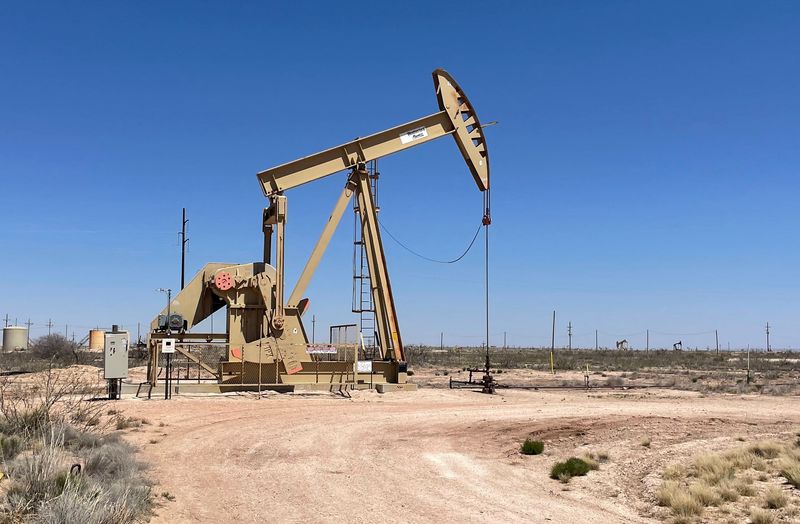(This Nov. 8 story has been corrected to fix the WTI settlement at $70.38, not $70.35, in paragraph 2)
By Shariq Khan
NEW YORK (Reuters) – Oil prices settled more than 2% lower on Friday as traders grew less fearful of prolonged supply disruptions from a hurricane in the U.S. Gulf of Mexico, while China’s latest economic-stimulus packages failed to impress some oil traders.
U.S. West Texas Intermediate futures led the decline and settled at $70.38 per barrel, down by 2.7%, or $1.98. Global benchmark Brent crude futures fell by 2.3%, or $1.76, to$73.87 per barrel.
Energy producers shut in more than 23% of oil output in the U.S. Gulf of Mexico by Friday to brace against Hurricane Rafael. However, the latest forecasts on trajectory and intensity reduced the risks Rafael poses to oil production.
“Threats of supply outages due to Hurricane Rafael are subsiding as the storms shifts to circling in the center of the Gulf of Mexico for the next five days or so,” Alex Hodes, analyst at brokerage firm StoneX told clients in a note.
The storm, which left a trail of destruction in Cuba this week, had weakened to a Category 2 hurricane on Friday, according to the U.S. National Hurricane Center’s latest advisory.
Meanwhile, top oil importer China’s latest round of fiscal support disappointed oil investors. Chinese authorities announced a package easing debt-repayment strains for local governments, but those measures do little to directly target demand, UBS analyst Giovanni Staunovo said.
“I guess some market participants were hoping for more stimulus measures coming from China,” he said. “Hence, the disappointment weighing on prices earlier today.”
Deflationary pressures on the Chinese economy have been a heavy drag on oil prices this year, with customs data showing a sixth consecutive month of year-over-year declines in the country’s crude oil imports for October.
Despite Friday’s losses, oil prices gained more than 1% week-over-week, drawing support from expectations of tighter sanctions on Iran and Venezuela by U.S. President-elect Donald Trump, which could cut oil supply to global markets.
The U.S. Federal Reserve’s decision to cut interest rates by a quarter percentage point on Thursday could also helped lift oil prices by more than 1% in the previous session.

